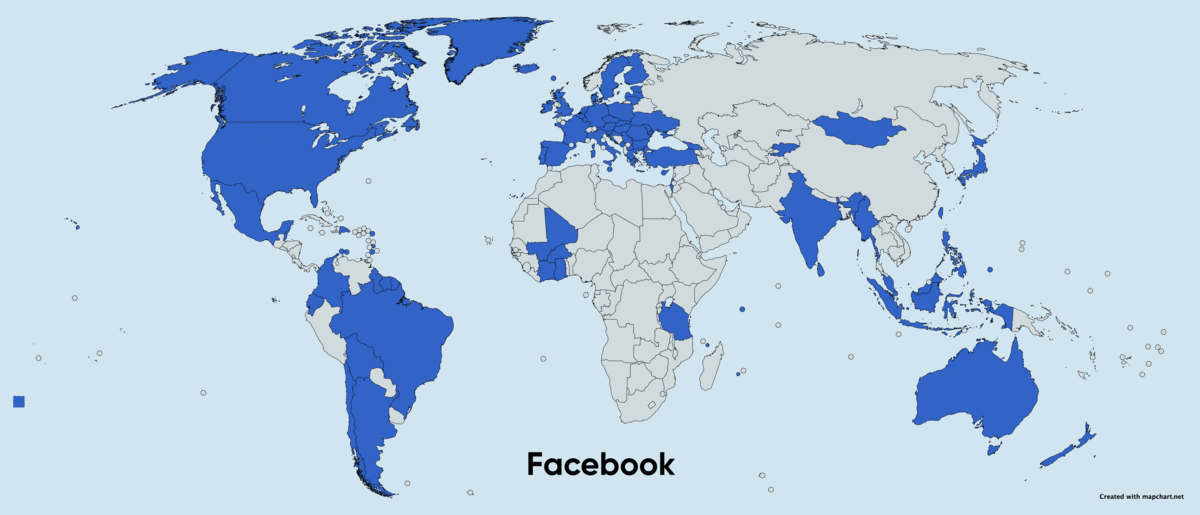Search
Content type: Explainer
An array of digital technologies are being deployed in the context of border enforcement. Satellite and aerial surveillance are part of the surveillance toolkit and yet, they are also used by organisations seeking to hold government actions to account and improve efficacy of their own work. To effectively critique state use and delve into potential benefits of satellite and aerial surveillance, we must first understand it.
In this explainer we dig into a technology which many are aware of for…
Content type: News & Analysis
It is difficult to imagine a more intrusive invasion of privacy than the search of a personal or home computer ... when connected to the internet, computers serve as portals to an almost infinite amount of information that is shared between different users and is stored almost anywhere in the world.
R v Vu 2013 SCC 60, [2013] 3 SCR 657 at [40] and [41].
The controversial Police Crime Sentencing and Courts Bill includes provision for extracting data from electronic devices.
The Bill…
Content type: Video
<br />
Links
- Locked down, our recommedations podcast: privacyinternational.org/video/3788/podcast-locked-down
- Schools and Covid: https://privacyinternational.org/news-analysis/3709/schools-and-covid-19
- Proctoring software and racism: https://www.theverge.com/2021/4/8/22374386/proctorio-racial-bias-issues-opencv-facial-detection-schools-tests-remote-learning
- Covid contact tracing apps: https://privacyinternational.org/long-read/3792/covid-…
Content type: Examples
The Irish Council for Civil Liberties (ICCL) has filed a lawsuit in Hamburg against three AdTech industry trade bodies including the Interactive Avertising Bureau (IAB). Members of the IAB include big tech companies (Google, Facebook, Amazon, Twitter...), data brokers (Equifax, Experian, Acxiom...) and advertising agencies (Groupm, Publicis, IPG...).
The lawsuit follows the filing in 2018 of complaints with the Irish Data Protection Commission (DPC) and UK Information Commissioner (ICO), which…
Content type: Explainer
Where are my images, contacts and documents stored?
You generate data every time you use your phone e.g. you generate data when you take photographs or record videos, when you create or edit notes and documents on the go, and when you add new names and numbers to your contacts directory.
All this data is created through dedicated apps - your camera and photo apps, social media apps, notes apps, and your contacts app are just some examples.
It is important to note that when you create any…
Content type: Examples
When Dallas police posted on Twitter asking for videos of the protests taking place after George Floyd's killing, a flood of videos and images of K-pop stars were uploaded to its anonymous iWatch Dallas tip-off app. Law enforcement can call on vast numbers of networked cameras - from cars, food and retail chains that are typically willing to share with police, law enforcement agencies' own networks of surveillance and body cameras as well as object and face recognition software, protesters and…
Content type: Long Read
The Grand Chamber of the European Court of Human Rights ruled that the UK government’s historical mass interception program violates the rights to privacy and freedom of expression. The Court held that the program “did not contain sufficient “end-to-end” safeguards to provide adequate and effective guarantees against arbitrariness and the risk of abuse.” As a result the Court ruled that UK law "did not meet the “quality of law” requirement and was therefore incapable of keeping the “…
Content type: Long Read
On 25 May 2021, the European Court of Human Rights issued its judgment in Big Brother Watch & Others v. the UK. Below, we answer some of the main questions relating to the case.
After our initial reaction, below we answer some of the main questions relating to the case.
NOTE: This post reflects our initial reaction to the judgment and may be updated.
What’s the ruling all about?
In a nutshell, one of the world’s most important courts, the Grand Chamber of the European Court of Human…
Content type: News & Analysis
On May 18th 2021 Google held its annual developer conference, Google I/O, where the company announces a number of innovations, products and software updates that will hit the market in the months to come. Among these announcements, the company introduced Android 12, its latest mobile Operating System (OS), that came with headline grabbing privacy features.
Possibly trying to catch up with Apple, which is positioning itself as a privacy-friendly tech company and gave the adtech industry a kick…
Content type: News & Analysis
The report on disinformation by the UN Special Rapporteur on the promotion and protection of the right to freedom of opinion and expression follows a growing trend by international bodies (including the Organization of American States and the European Commission) to assess and regulate the global phenomenon that is disinformation.
The report strongly links the spread of disinformation with the gratuitous data collection and profiling techniques utilised by the online…
Content type: Video
Links
Listen to Love Letter and find more from Sepia on Soundcloud: https://soundcloud.com/sepiamusicuk/love-letter (he's also on most other music platforms!)
Find out more about Dark Patterns: https://www.darkpatterns.org/
The Electronic Freedome Foundation on what comes after cookies: https://www.eff.org/issues/online-behavioral-tracking
WHO on COVID vaccine safety: https://www.who.int/news-room/q-a-detail/coronavirus-disease-(covid-19)-vaccines-safety
COVID and…
Content type: Explainer
Where are my communications stored?
Text messages/phone calls: Traditional cellphone communications happen over the cellular network. You usually access those with the text message and phone call apps that are provided as standard on your phone. While phone calls aren’t stored anywhere, text messages are stored locally on your and the recipient’s devices. They might also be temporarily stored by the network provider.
Messaging apps: Messaging platforms enable fairly secure communication…
Content type: Explainer
Where is my phone's location data stored?
Your phone can be located in two main ways, using GPS or mobile network location:
1. GPS
GPS (that stands for Global Positioning System) uses satellite navigation to locate your phone fairly precisely (within a few metres), and relies on a GPS chip inside your handset.
Depending on the phone you use, your GPS location data might be stored locally and/or on a cloud service like Google Cloud or iCloud. It might also be collected by any app that you…
Content type: Video
Links
Find more of Dr Thompson's work and her book 'An Organ of Murder: Crime, Violence, and Phrenology in Nineteenth-Century America'
Or you can find her on twitter
You can see the 'Good and Bad heads' picture in her article 'Rediscovering “Good” and “Bad” Heads in the Phrenological Present'
Find out more about Physogs and Photofit in Courtney's article in Endeavour
You can listen to our podcast on Facial Recognition
And you can support us
You can listen and subscribe to…
Content type: Video
Links
Learn more about mental health at the Mental Health Foundation's website
Support PI's work
Listen to our first episode with David about tracking on mental health websites
You can listen and subscribe to the podcast where ever you normally find your podcasts:
Spotify
Apple podcasts
Google podcasts
Castbox
Overcast
Pocket Casts
Peertube
Youtube
Stitcher
And more...
Content type: Video
Links
Find out more about general warrants and out case
Listen to our last podcast with Caroline - about a ruling in the European Union's top court that UK, French and Belgian mass surveillance regimes must respect privacy: Judgement Day
And make sure we can keep taking these fights to court: support.privacyinternational.org
You can listen and subscribe to the podcast where ever you normally find your podcasts:
Spotify
Apple podcasts
Google podcasts
Castbox
Overcast
Pocket Casts…
Content type: Long Read
What’s the ruling all about?The Constitutional Court of South Africa in a historic judgment declared that bulk interception by the South African National Communications Centre is unlawful and invalid. Furthermore, the Constitutional Court found that the Regulation of Interception of Communications and Provision of Communication-Related Information Act (RICA) 1) was deficient in failing to provide at least a post-notification procedure for subjects of interception; 2) failed to ensure the…
Content type: Advocacy
Esta carta también está disponible en inglés.
Estimados Sres. Zuckerberg y Pichai,
En los últimos años, ustedes han sido pioneros en la creación de importantes herramientas de transparencia para ayudar a los usuarios de su plataforma a entender, conocer y contextualizar la propaganda electoral a las cuales se ven expuestos. Estamos de acuerdo en que los procesos de verificación de anunciantes y los repositorios de anuncios son salvaguardas claves contra la manipulación y la desinformación en…
Content type: Advocacy
This letter is also available in Spanish.
Dear Mr. Zuckerberg and Mr. Pichai,
In the past few years, you have pioneered important transparency tools to help your platform users understand, learn about and contextualise the political advertising they see. We agree that advertiser verification processes and ad repositories are key safeguards against online manipulation and misinformation. However, we are saddened to observe that these benefits have not been equally distributed among your global…
Content type: Case Study
Your phone is the ideal profit tool for data brokers and advertisers: it's always in your pocket and can be used both as a means of collecting information and serving you ads based on that information. But how does this data collection happen through your apps?
Most, if not all, apps on our phones use Software Development Kits (SDKs). SDKs themselves are not trackers, but they are the means through which most tracking through mobile apps occurs. These kits are provided by third parties and…
Content type: Long Read
Now more than ever with a global pandemic happening, our lives are being shaped by our interaction with the digital world. Work meetings on Zoom followed by Skype with family before a quick run with your favourite running app and a Google search for your next meal: technologies and services offer us a lot and greatly improve our daily lives. But what's the real cost of these tools we rely on so much?
A lot of these companies, especially those offering free services, collect data about you. It…
Content type: Video
In recent years, the use of online political campaigning has gained significant traction, with regulatory bodies often struggling to catch up. The unregulated use of political ads can pose threats to transparency, and all the more so when online platforms fail to play their part.
We at PI, together with ELSAM, are investigating the reach, effectiveness and impact of regulation by social media platforms and electoral authorities on online political advertising. Our research has shown…
Content type: Video
Nos últimos anos, o uso de campanhas políticas online ganhou força significativa, com os órgãos reguladores muitas vezes lutando para se atualizar. O uso não regulamentado da propaganda política pode representar ameaças à transparência, ainda mais quando as plataformas online deixam de cumprir a sua parte.
A PI, juntamente com o InternetLab, está investigando o alcance, a eficácia e o impacto da regulamentação por plataformas de mídia social e autoridades eleitorais na…
Content type: Video
Links:
Our report in English
Our report in Spanish
You can listen and subscribe to the podcast where ever you normally find your podcasts:
Spotify
Apple podcasts
Google podcasts
Castbox
Overcast
Pocket Casts
Peertube
Youtube
Stitcher
And more...
Content type: Video
In recent years, the use of online political campaigning has gained significant traction, with regulatory bodies often struggling to catch up. The unregulated use of political ads can pose threats to transparency, and all the more so when online platforms fail to play their part.
We at PI, together with InternetLab, are investigating the reach, effectiveness and impact of regulation by social media platforms and electoral authorities on online political advertising. Our research has…
Content type: Long Read
Among the many challenges of 2020, the impact on elections around the world kept us all on the edge of our seats. 75 countries postponed national and local elections due to Covid 19. Of the elections that went ahead, we saw Covid safe measures at polling stations (South Korea led the way forward in April) an increase in postal voting (who can forget the USA, but also Poland) and political parties in Uganda conducting "virtual" campaigns as mass rallies and in person campaign meetings were…
Content type: Press release
Privacy International announces the launch of two reports as part of its work on Defending Democracy and Dissent.
The report Online Political Ads: A study of inequality in transparency standards builds on our 2019 research findings and delves into the adverse impacts of non-existent or limited transparency on democracy based on two case-studies developed by our partners InternetLab and ELSAM.
The report, Micro-Targeting in Political Campaigns,…
Content type: News & Analysis
Over the past years, there has been much attention paid to political advertising transparency on online platforms. Growing internet penetration and the rising popularity of social media have made social media platforms a key battlefield for political actors in the fight for votes, where political ads have proved themselves to be a popular weapon. This means online transparency towards voters has become more imperative than ever.
And yet, social media platforms’ regulation of political ads…
Content type: News & Analysis
In the US, the Federal Trade Commission and various states attorneys general have opened investigations against alleged anti-competitive practices of Facebook and Google, while demands for stronger regulation both in anti-trust and privacy laws are growing. The EU has unveiled its twin proposed legislation, the Digital Services Act and the Digital Markets Act, aimed at increasing the responsibilities of big platforms and seeking to address the power imbalance they have over other businesses and…
Content type: Video
This podcast was recorded before the US Federal Trade Commission told a company called 'Ever' to delete any facial recognition algorithms they developed without consent
Links:
The original article
Info on how to do your own Data Subject Access Request
And the template from the ICO
Info on how to request your data be deleted
Find more from Ann Cavoukian
Find out more about the ACLU's legal challenge in Illinois
Find out more about Robert Julian-Borchack William's case…























